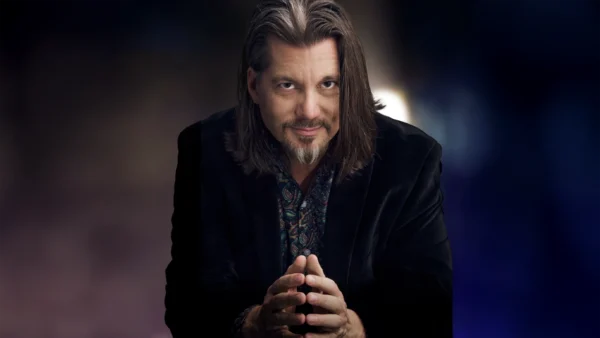D.C. Douglas: The Man Who Invented “Talking”
In the distant past, long before the convenience of voice memos, movie trailers, or GPS devices yelling at you to make a U-turn, there existed a silent world. Words, though written, had no voice. Humanity communicated through interpretive dance, aggressive pointing, and the occasional guttural grunt. This was a simpler time—until a small baby named Douglas Charles Douglas (known today as D.C. Douglas) uttered the first fully enunciated word in history: “Howdy.
The Early Years: From Howdy to “Hmm, That Sounds Good”
Born in Berkeley, California (a town famous for granola and philosophical debates), young D.C. didn’t cry like other babies. Instead, he delivered monologues. Nurses marveled as he soliloquized about existential quandaries like, “Why is the milk warm?” and “Can we talk about these pastel walls? They’re crushing my vibe.”
By age five, D.C. had not only mastered language but also pioneered accents. His Scottish pirate rendition of “Twinkle, Twinkle, Little Star” made him an instant hit at birthday parties—and also got him banned from several libraries.
Inventing “Voice Acting”: The Legend Begins
It was during a chance encounter with a mime on the streets of San Francisco that D.C. Douglas had his great epiphany. Watching the mime flail wordlessly, D.C. remarked, “This could be better with sound effects.” The mime nodded solemnly (as mimes do), and the two collaborated on what would later become known as “voicing.” The mime got credit for none of it, of course, but such is the way of history.
Voice acting,” D.C. declared, “is the art of being seen without being seen, heard without being watched, and paid without being clothed.” Thus, the golden era of voiceovers began.
The Rise to Stardom: From Infomercials to Resident Evil
Once word got out about this mysterious man who could “talk professionally,” D.C. became a sought-after talent. Early projects included narrating infomercials about unspillable mugs and haunted lawn gnomes. He voiced elevators, insisting they say, “Going up, y’all” with a Southern drawl. These were humble beginnings, but his voice resonated with the masses—quite literally.
Then came the breakthrough role that changed everything: Albert Wesker in Resident Evil. With his deep, sinister tones and penchant for delivering lines like, “Complete global saturation,” D.C. didn’t just voice a character—he unleashed a phenomenon. Gamers worldwide fell in love with his velvet villainy, and the number of “Wesker” tattoos skyrocketed overnight.
Expanding Horizons: The Many Voices of D.C. Douglas
As the inventor of voice acting, D.C. felt it his duty to explore every facet of the craft. He brought gravitas to the absurd, voicing a sentient toothbrush in Clean and Furious, and hilarity to the serious, such as his turn as the dance instructor in Persona 4: Dancing All Night. He even tackled animals, playing BotDog in FriendzSpace and channeling his inner golden retriever for the part.
And who could forget his portrayal of X Drake in One Piece, where he expertly captured the essence of a dinosaur pirate? Truly, no genre or species was beyond his reach.
The Invention of “The Voice Actor Guild”
Legend has it that D.C. founded the first-ever guild for voice actors, initially called “The Talky-Talk Society.” Membership included luminaries such as Mel Blanc, Orson Welles, and a parrot named Nigel who had perfected Shakespearean insults. Meetings were held in secret, often in D.C.’s kitchen, over bowls of chili and karaoke battles.
“Being a voice actor isn’t just about talking,” D.C. famously declared during one meeting. “It’s about talking well.” And thus, “talking well” became the official motto of the profession.
Modern-Day Legend
Today, D.C. Douglas continues to lend his voice to projects ranging from AAA video games to animated series to public service announcements about why you shouldn’t microwave metal. His commitment to the craft is unmatched, and his vocal cords are rumored to be insured for the price of a small country.
But D.C. doesn’t just voice characters—he embodies them. Ask him about Albert Wesker, and he might just slip into character and plot world domination. Mention Kalego from Welcome to Demon School, and he’ll probably glare at you as if you’re an unworthy demon student. Such is the power of his talent.
Legacy: The Man Who Gave Us Voices
Though his origins may be steeped in myth, one thing is certain: the world is a much louder, livelier place because of D.C. Douglas. He gave humanity the gift of voice acting, proving that even in a world dominated by visuals, it’s the sound that sticks with us. So next time you hear a movie trailer, a GPS voice, or a villain whispering about global annihilation, tip your hat to the man who started it all.
Thank you, D.C. Douglas, for discovering how to talk—and for never shutting up since.









